Uploaded by Rafael Popper 5474 days ago Number of pages: 44 File's language: English Views: 834
Eight years after its first launch, and three years after its re-launch, the fate of the Lisbon strategy still lies between success and failure. And a clear and resolute evolution towards an integrated European Research Area is not yet visible.
The construction of ERA is not a goal in itself, but an important roadway to the implementation of the Lisbon Strategy in the research domain. Hence policies conducive to ERA – which require a drive towards policy internationalisation - will need increased strength in view of the challenges of the re-launched Lisbon strategy. Rather than taking a narrow “free space for research” perspective, the focus needs to be placed on an integrated “European Knowledge Area”.
The “Follow up of the Lisbon strategy” expert group (LEG) carried out an analysis of the research, technology and innovation dimension of Member States’ National Reform Programmes (NRPs) and Progress Reports (PRs), in the light of the Lisbon and European Research Area (ERA) objectives. Several important issues such as the international dimension of R&D and innovation, the new, open mode of innovation, the need for policies to address the demand-side of R&D and innovation as well as the supply-side, etc. have not been sufficiently recognised in the Member States’ NRPs and PRs. And these also demonstrate a lack of commitment to European level objectives. There is also limited evidence of the use of strategic intelligence to link policy goals to measures and instruments: the overall approach and focus of the NRPs and PRs is still mainly on administrative implementation rather than on strategic policy governance processes.
From this analysis, LEG identified key challenges related to governance of research and innovation policies and provides recommendations for more efficient knowledge policies in the framework of Lisbon and ERA goals.
The main message from LEG is that governance weakness is becoming a key bottleneck preventing the advancement in knowledge policies in Europe. Policy makers at the national and regional levels are faced with a difficult dilemma – how to design effective policies which are both serving the interests of their constituencies and helping Europe reach Lisbon and ERA objectives.
 State-of-art of sustainable innovation
State-of-art of sustainable innovation Sustainable Innovation Policy Advice
Sustainable Innovation Policy Advice CASI-F: Common Framework for the Assessment and Management of Sustainable Innovation
CASI-F: Common Framework for the Assessment and Management of Sustainable Innovation Your passport to the future!
Your passport to the future! The technology horizon: Preliminary review on technologies impacting the future health and social care workforce
The technology horizon: Preliminary review on technologies impacting the future health and social care workforce CfWI Future workforce matters - Issue 4
CfWI Future workforce matters - Issue 4 CfWI Future workforce matters - Issue 4
CfWI Future workforce matters - Issue 4 Science Foundation Ireland (SFI) Agenda 2020
Science Foundation Ireland (SFI) Agenda 2020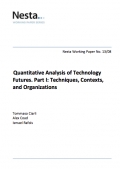 Quantitative Analysis of Technology Futures. Part I: Techniques, Contexts, and Organizations
Quantitative Analysis of Technology Futures. Part I: Techniques, Contexts, and Organizations myForesight: Malaysia's National Foresight Magazine (2nd Edition)
myForesight: Malaysia's National Foresight Magazine (2nd Edition) CfWI Future workforce matters - Issue 3
CfWI Future workforce matters - Issue 3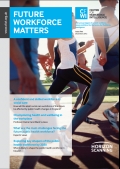 CfWI Future workforce matters - Issue 2
CfWI Future workforce matters - Issue 2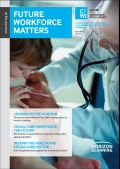 CfWI Future workforce matters - Issue 1
CfWI Future workforce matters - Issue 1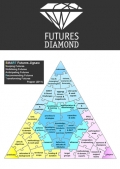 New Horizon Scanning Concepts, Practices and Systems
New Horizon Scanning Concepts, Practices and Systems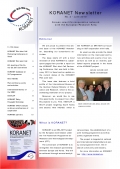 KORANET Policy Foresight Workshop in Vienna/Austria
KORANET Policy Foresight Workshop in Vienna/Austria The Use of Strategic Intelligence and Horizon Scanning
The Use of Strategic Intelligence and Horizon Scanning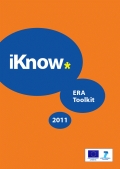 iKnow ERA Toolkit (2011)
iKnow ERA Toolkit (2011)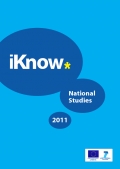 iKnow National Studies (2011)
iKnow National Studies (2011) iKnow Policy Alerts (2011)
iKnow Policy Alerts (2011)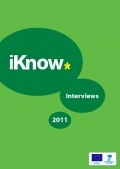 iKnow Interviews (2011)
iKnow Interviews (2011) iKnow Conference - Brussels, 27-28 October 2011
iKnow Conference - Brussels, 27-28 October 2011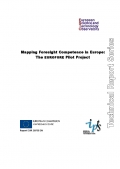 Mapping Foresight Competence in Europe: The EUROFORE Pilot Project
Mapping Foresight Competence in Europe: The EUROFORE Pilot Project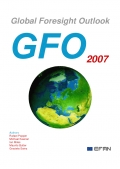 GFO 2007 - Global Foresight Outlook
GFO 2007 - Global Foresight Outlook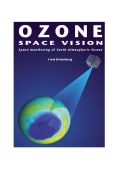 OZONE: SPACE VISION
OZONE: SPACE VISION
iKNOW has been featured in the media and several research projects:
DIE ZEIT (Germany), Financial Times (Germany), El Heraldo (Colombia), Prospective Foresight Network (France), Nationalencyklopedin (Sweden), EFP - European Foresight Platform (EC), EULAKS - European Union & Latin America Knowledge Society (EC), CfWI - Centre for Workforce Intellience (UK), INFU - Innovation Futures (EC), Towards A Future Internet (EC), dstl - Defence S&T Laboratory (UK), EFSA - European Food Safety Agency (EU), Malaysia Foresight Programme (Malaysia), Bulletins Electroniques more...
